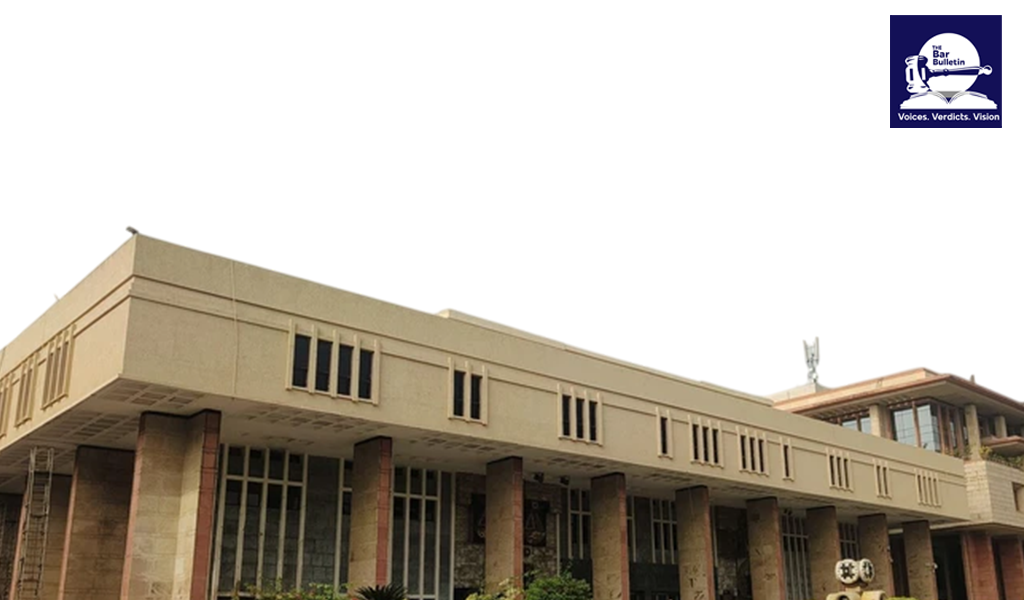While strongly asserting that the ‘Registered Office’ does not establish territorial jurisdiction if no cause of action has arisen at that office, the Delhi High Court held that even if parties have agreed to an exclusive jurisdiction clause, they cannot grant jurisdiction to a Court that otherwise lacks authority over the subject matter. The exclusion of some Courts’ jurisdiction is allowed only if the Court receiving exclusive jurisdiction already has proper jurisdiction.
The Court clarified that exclusive jurisdiction clauses act as ouster clauses. Reference was made to the decision of the Supreme Court in the case of Swastik Gases Private Limited v. Indian Oil Corporation Limited [(2013) 9 SCC 32], where it was held that even if an agreement does not specifically use words like ‘alone’, ‘only’, ‘exclusive’, or ‘exclusive jurisdiction’, the construction of such a clause is unaffected because of the maxim ‘expressio unius est exclusio alterius’, provided there is nothing to the contrary in the agreement.
A Single Judge Bench of Justice Jyoti Singh observed that if the arbitration agreement specifies a “seat” of arbitration, then only the court with jurisdiction over that seat may handle matters related to the arbitration. If the agreement does not specify a seat but does specify a “venue” or “place,” and there are no indications to the contrary, then that place will be treated as the juridical seat of arbitration, and only the court at that place will have jurisdiction over arbitration matters.
Since, in the present case, there is no designation of seat, place, or venue, the Bench observed that the territorial jurisdiction of the Court will be evaluated according to the principles of Section 20 of the CPC.
The Bench noted that the disputes between the parties involve construction contracts given to the Petitioners for projects located in Gurugram, Haryana. Essentially, the disputes concern issues such as breach or non-performance of contracts, plant and machinery, equipment, and non-payment of dues. None of the contracts was executed in Delhi, and no transaction related to the contracts took place there. All project sites, installations, and equipment relevant to the contracts are situated in Gurugram. There is no evidence presented of any part of the contracts being performed in Delhi.
Thus, the Bench negated the claim of the Petitioner that the Contract Agreements and Work Orders were executed in Delhi, upon examining the Agreements, which clearly show that they were signed in Gurugram and the stamp duty was paid in Haryana. Hence, no part of the cause of action has arisen in Delhi.
Referring to the Explanation to Section 20 of the CPC, the Bench explained that if a corporation (including a company) has a sole or principal office at one place, courts within that jurisdiction will have authority, since the corporation is deemed to carry on its business there by legal fiction. If the corporation has a principal office and also a subordinate office elsewhere, such as a Registered Office in one location and a branch in another, the place for filing will be determined by where the cause of action arises within the local limits, not by the principal place of business.
The Bench therefore concluded that it lacks territorial jurisdiction since the Respondent does not operate a business here and no cause of action has arisen in this territory. Further, the Bench also negated the Petitioners’ argument that the Respondent has a bank account in Delhi, used as a basis for complaints under Section 138 of the NI Act, holding it as irrelevant for determining this Court’s territorial jurisdiction. Since the Court lacks territorial jurisdiction, the objection regarding the existence of the arbitration agreements is not addressed.
Briefly, the Arbitration petition arises out of a Contract Agreement and Work Order relating to the construction of “Civil, Structural, Finishing, Civil Work of UG Tank & STP Tank, Community & Anganwadi and Part Electrical Work” in the Affordable Group Housing Project “Superbia” in Gurugram, Haryana. The disputes arose between the parties, each one blaming the other for non-performance/breach of the contract.
Hence, the Petitioner filed a petition under Section 9 of the Arbitration Act, seeking interim relief against the Respondent from alienating/ dismantling the plant and machinery installed at the construction site and also depositing security cheques, encashing indemnity bonds and performance guarantee bonds and creating third-party interests. Since no interim relief was granted, the petitioner has sought the appointment of the Arbitrator.
Cases Distinguished:
Rita Nandwani vs. M/s Nestaway Technologies Pvt Ltd. [Arb. P. 1414/2022, decided on 14.09.2023]
Nexus Design Project Pvt Ltd. vs. Travel Foods Services (Delhi Terminal 3) Pvt Ltd. [Arb. P. 340/2014, decided on 27.02.2015]
Appearances:
Senior Advocate Santosh Kumar, along with Advocates Rajiv Ranjan Mishra and Suruchi Yadav, for the Petitioner
Senior Advocate Jayant K. Mehta, along with Advocates Ashish Aggarwal, O.P. Faizi, Anand Aggarwal, Darshna Aggarwal, Himanshu Singh, Shivangi Shokeen, Rahul Malik, Rajat Sinha, and Lisha Arora, for the Respondent

